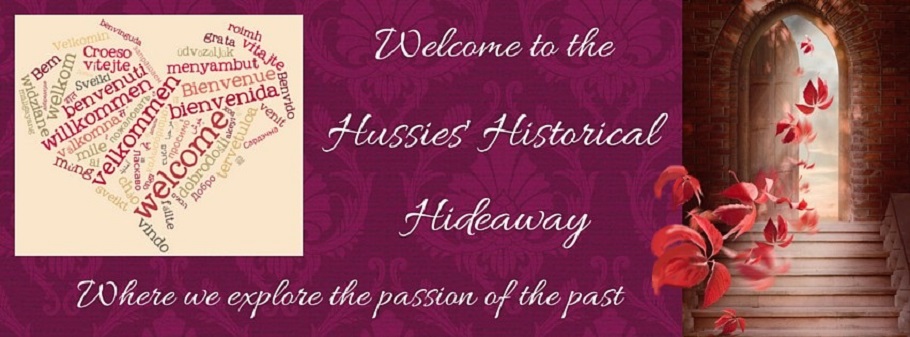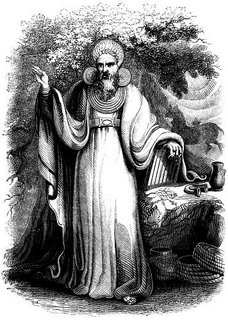The Harvey Girls:Women Who Tamed The Wild Frontier
Harvey Girls

My February '07 release THE LAWMAN'S BRIDE features a heroine on the run from a con man and the law. She fakes a background and references and chooses the least likely place imaginable to hide herself: working as a Harvey Girl in Newton, Kansas. Of course the hero is the City Marshal, so they collide in a good many fun and dangerous ways.
Much has been written about women who traversed the continent by wagon train as well as those who were mail-order brides. But there’s a less well-known, more unique, and equally important percentage of young women who blazed a trail of civilization from east to west coast. These were the Harvey Girls.
As the railroad charged across the west, little thought was given to the comfort of passengers. Food was inedible or lethal and service sloppy. Some café owners even went in cahoots with railroad crews and scammed passengers: No sooner was the food placed before the patrons who had paid half a dollar in advance, than the whistle would toot. Afraid of being left behind, passengers ran for the train and the food was “recycled” for the next trainload of unsuspecting victims.
Fred Harvey, an Englishman, worked his way up in fine eating establishments in the East before trying his hand at a partnership which failed. After brief service on a riverboat and a stint as a postal worker, he sold advertising for a newspaper and invested in cattle ranching, finally deciding while working as a freight agent that there was a crucial need for improved food and service along the rails.
Harvey negotiated with Santa Fe Railroad and built his first dining operation in a wooden depot in Topeka. The premises were spotlessly clean. Premium prices were paid for top-quality supplies and ingredients, and table settings included Irish linens and English silver. Harvey’s standards brought instant and overwhelming success.
At his second establishment, a restaurant-hotel at Florence Kansas, he hired a chef away from Chicago’s Palmer House Hotel and paid him a $5,000 salary, more than the local bankers earned. The little town of Florence became famous for its Harvey House meals.
Uniforms, fingernails, place settings, food lockers, and all facilities came under stringent regulations. Harvey, perfecting the Sudden Unannounced Visit as a means of quality control, would suddenly appear and conduct a white-glove inspection, tossing an offending manager out onto the platform at the least infraction.

Dining Room

New Harvey Houses opened up at the division/meal-stop points, and by 1883, Harvey was operating seventeen establishments along the old Santa Fe Trail. The restaurants made a profit despite their devotion to quality food, generous portions, and elegant furnishings. The only drawbacks to their success were the staffs of unreliable male employees who either showed up for work hung over or were injured in brawls.
In 1883 Harvey implemented a policy that would be his greatest impact on the American West. Advertisements appeared in several eastern and Midwestern papers:
WANTED: Young women, 18 to 30 years of age, of good character, attractive and intelligent.
Harvey hired waitresses the same way he’d set about locating the finest food, furniture, chefs and managers. Women were screened with the same perfectionist methods. Upon signing a contract (twelve months in the early days), she usually had twenty-four hours to tell her family good-bye and begin rigorous training in Newton, Kansas.
Between 1883 and the 1950’s, tens of thousands of women applied and learned “the Harvey way”. The first women answering the ads had many motivations for doing so, financial reasons most prevalent: Starting out, they were paid $17.50 per month, plus tips, room and board, and unsurpassed meals.
Though black and white uniforms, black shoes and stockings, hairnets, and no make-up were intended to diminish their appearance, the Harvey girls were the best “dishes” the dining halls served up for the frontier men. The girls were friendly faces in an often lonely land.
Most dormitories had a courting parlor where gentlemen could call, plus a sewing room. The girls were among the best paid and best dressed females in their towns. Many, being farmers’ daughters, sent earnings home to their families.
The women worked their way up from the lunch counter to the dining hall and earned promotions or transfers to other houses along the Santa Fe. They worked six- and seven-day weeks, often twelve hours a day in split shifts around meal trains. When not serving, they cleaned and polished and kept their station ready for the next train.
When they did have free time, they rode the rails free, visiting family, or played softball. Some Harvey Houses had their own teams which traveled up and down the line competing in other towns.
A Harvey House was a social and business gathering place. Many real and imagined romances were spawned in the elegant setting. Countless contracts were broken and pay forfeited when Harvey Girls met and married railroad men, cattle ranchers, and businessmen. The impact of these “good, attractive, and intelligent” women on the towns they poured into shouldn’t be underestimated.
As approximately 5,000 of them married and raised families, eastern culture and civic improvement spread throughout Illinois, Missouri, Kansas, Oklahoma, Texas, Colorado, New Mexico, Arizona, California, and eventually the rest of the states. These were the women in the forefront of the law and order movements, improving safety and quality of life. Their voices were the ones heard in civic activities, church choirs, and community stage productions.
The Harvey Girls who married and settled in the West tended to marry men of high standing and to be the most capable women in the community. It’s been claimed that thousands of boys born to these couples bore the names Fred or Harvey or both.
Moreso than dining experiences and service standards, Harvey’s most profound contribution to the civilization of the American West was the advent of the Harvey Girl. They worked hard, but with dignity and a sense of purpose. They were professionals worthy of respect and admiration.
Many Harvey Houses survived the great depression o the 30’s, and as part of the war effort, Harvey Girls served thousands of troops during WW II. The disappearance of Harvey Girls is historically linked to the extremes of war and to progress in the form of automobiles and airplanes, an appropriate and worthy end to the legendary women who settled the West.
Will Rogers, western philosopher and humorist, recognized the contribution of the Harvey Girls with this: “In the early days the traveler fed on the buffalo. For doing so, the buffalo got his picture on the nickel. Well, Fred Harvey should have his picture on one side of the dime, and one of his waitresses with her arms full of delicious ham and eggs on the other side, ‘cause they have kept the West supplied with food and wives.”
BIBLIOGRAPHY:
THE HARVEY GIRLS, Women Who Opened The West, Lesley Poling-Kempes
THE HARVEY GIRLS, The Women Who Civilized The West, Juddi Morris
THE HARVEY HOUSE COOKBOOK, Memories of Dining Along The Santa Fe Railroad,
George H. Foster and Peter C. Weiglin
THE RAILROADERS, Time-Life Old West Series
STEEL TRAILS TO SANTA FE, L.L. Waters, University of Kansas Press










